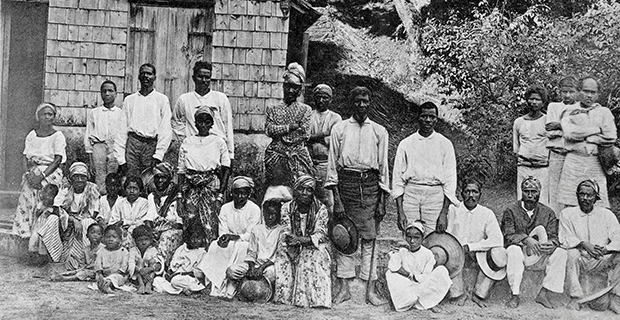INDIAN STORY IN FRENCH WEST INDIES
A pivotal look at how Indian indentured labour shaped the French West Indies
On April 27, 1848, France abolished slavery. In the French West Indies, this decision had a major impact on the colonies, whose sugar economy relied entirely on slave labour. Following the promulgation of this decree, many newly emancipated slaves deserted the plantation, which had become the symbol of their servitude. Fearing bankruptcy, landowners turned to foreign immigration to remedy the labour shortage. Supported by the governors of Guadeloupe and Martinique, they started to exert strong pressure on the Ministry of the Navy and Colonies to obtain authorization to bring indentured workers. In this, they followed the example of the British islands, which had massively introduced foreign workers to restore the sugar economy endangered by the abolition of slavery promulgated in 1833. Another explanation also lies in the planters’ incapacity to remunerate the now-emancipated workers. Not all workers had left the plantation and would have accepted to labour the land of their former masters, but they now demanded wages that the landowners, already heavily indebted, claimed they could not pay. They thus sought to implement “competition among labourers... to bring back to a just and suitable level the exorbitant rate of wages”[1]. Bringing foreign workers, who were cheaper, would thus allow them to cut the wages and, above all, to avoid remunerating those who, until recently, had worked for free. Indeed, the abolition of slavery had not fundamentally altered the slaveholding conception of society in the Caribbean, as perpetuated and defended by the planters.
Napoleon III’s Decrees
In 1852, Louis-Napoléon Bonaparte, who had become Napoleon III (1852-1870), acceded to the colonists’ demands. Two decrees were then published on February 13 and March 27. They established the framework for new labour regulations within post-slavery societies. The decree of February 13, 1852, established the conditions of forced labour applying to former slaves and indentured immigrants, thus putting an end to the demands of agricultural workers. The second decree applied to immigrants coming to the French Caribbean as indentured workers. This text aimed to ensure their comfort and safety during the crossing. Above all, it outlined the broad principles of the new colonial policy promoted by 19th century France.











Comments.